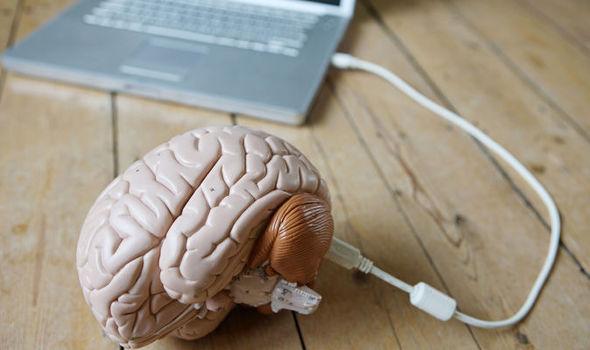當前位置: Language Tips> 雙語新聞
Scientists discover how to 'upload knowledge to your brain'
分享到
據(jù)外媒報道,美國休斯研究實驗室(HRL Laboratories)的研究人員已經(jīng)研發(fā)出一種幫助人腦快速學習的系統(tǒng),他們聲稱該系統(tǒng)能夠直接將新技能和新知識上傳到你的大腦。這種逆天技能堪比電影《黑客帝國》中的場景。

Feeding knowledge directly into your brain, just like in sci-fi classic The Matrix, could soon take as much effort as falling asleep, scientists believe.
科學家們認為,人類很快就能和經(jīng)典科幻電影《黑客帝國》里演的一樣,只需要睡上一覺即可將知識直接灌入大腦。
Researchers claim to have developed a simulator which can feed information directly into a person's brain and teach them new skills in a shorter amount of time, comparing it to "life imitating art".
研究人員聲稱,他們開發(fā)了一種可以直接將信息輸入人腦的模擬器,這種模擬器可以在短時間內(nèi)教會人類新技能。他們將其比作“生活模仿技術(shù)”。
In the neo-noir sci-fi classic, protagonist Neo is able to learn kung fu in seconds after the martial art is 'uploaded' straight to his brain.
在這部新黑色經(jīng)典科幻電影中,男主角尼奧在大腦加載武術(shù)招數(shù)后很快就學會了功夫。

Researchers from HRL Laboratories, based in California, say they have found a way to amplify learning, only on a much smaller scale than seen in the Hollywood film.
加州休斯研究實驗室的研究人員表示,他們已經(jīng)找到了一種提高學習能力的方法,只不過這種方法有效的范圍比《黑客帝國》中展示的要小。
They studied the electric signals in the brain of a trained pilot and then fed the data into novice subjects as they learned to pilot an aeroplane in a realistic flight simulator.
他們對一名受訓飛行員大腦中的電信號進行研究,然后當受試新人飛行員在飛行模擬器中駕駛飛機時將這些數(shù)據(jù)傳送到他們的大腦。
The study, published in the journal Frontiers in Human Neuroscience, found that subjects who received brain stimulation via electrode-embedded head caps improved their piloting abilities and learnt the task 33 percent better than a placebo group.
這份發(fā)表在《人類神經(jīng)科學前沿》上的研究發(fā)現(xiàn),用嵌入電極的帽子進行大腦刺激之后,新手飛行員的技術(shù)便可得以提升,且比對照組的任務(wù)學習能力高33%。
"Our system is one of the first of its kind. It's a brain stimulation system," explained Dr Matthew Phillips.
馬修?菲利浦博士稱:“我們研發(fā)的系統(tǒng)是一種大腦刺激系統(tǒng),是該類型系統(tǒng)的首創(chuàng)成果之一。”
"It sounds kind of sci-fi, but there's large scientific basis for the development of our system."
“這聽起來有點像科幻小說,但是我們的系統(tǒng)有著堅實的科學基礎(chǔ)。”
"The specific task we were looking at was piloting an aircraft, which requires a synergy of both cognitive and motor performance.
“我們所測試的特殊任務(wù)是駕駛一架飛機,這需要認知和操控的共同協(xié)調(diào)。”
"When you learn something, your brain physically changes. Connections are made and strengthened in a process called neuro-plasticity.
“當你學習知識的時候,大腦就會發(fā)生生理上的變化,神經(jīng)連接就會在所謂的神經(jīng)可塑性過程建立并得到強化。”
"It turns out that certain functions of the brain, like speech and memory, are located in very specific regions of the brain, about the size of your pinky."
“研究發(fā)現(xiàn)大腦的某些功能,比如說語言和記憶,位于大腦特定的區(qū)域,大約只有小指頭大小。”
Dr Matthew believes that brain stimulation could eventually be implemented for tasks like learning to drive, exam preparation and language learning.
馬修認為,人類最終有可能將這種大腦刺激方式應(yīng)用到駕駛員培訓、備考和語言學習中。
"What our system does is it actually targets those changes to specific regions of the brain as you learn," he added.|
他還稱:“這一系統(tǒng)實際上針對的是學習時大腦特定區(qū)域的變化。”
"The method itself is actually quite old. In fact, the ancient Egyptians 4000 years ago used electric fish to stimulate and reduce pain.
“事實上這是一種相當古老的方法,早在4000年前,古埃及人就通過電魚來刺激和減少疼痛。”
"Even Ben Franklin applied currents to his head, but the rigorous, scientific investigation of these methods started in the early 2000s and we're building on that research to target and personalise a stimulation in the most effective way possible.
“本?富蘭克林也曾經(jīng)將這種電刺激用于自己的頭上,但是真正對該方法進行科學探索始于21世紀初期,我們研究的目標就是用盡可能有效的方式使這種刺激的受眾更明確、更個性化。”
"What we found is … brain stimulation seems to be particularly effective at actually improving learning."
“我們的研究發(fā)現(xiàn)……大腦刺激似乎在提高學習能力方面特別有效。”
英文來源:每日電訊報
翻譯&編輯:董靜
審校:丹妮
上一篇 : 《吸血鬼日記》或再拍衍生劇
下一篇 : 辦公室小野:一根蠟燭煮火鍋
分享到
關(guān)注和訂閱

翻譯
關(guān)于我們 | 聯(lián)系方式 | 招聘信息
電話:8610-84883645
傳真:8610-84883500
Email: languagetips@chinadaily.com.cn